Device Combo

Priorities & Concerns
Why did you choose a smart system?
I was diagnosed in 2000, and at the time, my CDE was very particular. "You should be on a pump. You should be on a pump." This idea of having this thing attached to me was super scary. It was just hard, but she was adamant. But once I got on a pump, I've never really had fallout where people are treating me different. I mean, certainly, you have to explain things along the way. But devices have never necessarily been a blocker to the way I want to live life.
I've worn a number of devices and contraptions to help manage my condition. I started off on multiple daily injections, and picked up an insulin pump a couple of months later. Then it was probably 10 more years before I got introduced to a CGM, and it was a bad experience. It just wasn't managing nights, and it would always tell me I'm low, and I would sleep on the sensor and all those sorts of things. Then I went off that, and another couple of years went by, and then I tried a new sensor but the platform didn't work for me. I recently got on a Dexcom, the newest version, and it's outstandingly awesome and syncs with my phone. I don't have to carry another device.
Having the automated pump, the highs are a little less, and the lows are a little less, and the in-range is a lot more, and that's a big benefit. It's also given me access to a very intelligent group of people who are doing the same thing, and we learn from each other, and we contribute to one another's success, which has been awesome.
What wisdom would you share with someone considering your setup?
I think number one is understanding what you see as success, and focus on that first. It's easy to say technology makes it better, and in many ways it does. But closed loop is not the panacea to make everything wonderful. I know people who take multiple daily injections who have better control than I do, and it's not necessarily my place to say, "Thou shalt use something else" because what they have is working for them. But for me, I know I wanted tighter control, and technology has helped me do that. But at the other end of it, you have more data, so it never really gets away from you.
A friend of mine on Facebook coined the term 'hyperglancemia', this idea that I'm always looking at my Dexcom to know if I am going up, or if I am going down. There's a part of the technology that you have to distance a bit and live life and accept that this disease can be controlled to a large degree, but part of it is random. You have to sort of be willing to work through some of the randomness and live life in-between.
Diabetes devices can produce a lot of information and numbers. How do you feel about this? What do you do with all the data?
I'd be lying to say that it didn't necessarily have an effect. Nobody likes to be high or low, and we all want our lines to be level, but the reality is that doesn't happen.
I think if you put the work into it, results will come. Moving my A1C to be at my goal was a huge win for me. But it doesn't come without cost. You have to work at it and make lifestyle changes and dietary changes and so on and so forth, but it's worth it to me. I've had this disease long enough where it's like, yeah, I'm not young anymore, and I want to get the most I can out of life, so I need to control the things I can. But if I let the things that I can't control or the inherent randomness of the condition control me, it will literally drive me nuts. So there's a balance, and that balance is different for everyone, and everyone's goals are different. The worst thing that I've done is internalize somebody else's goals and schedules and realized that's not me, and that's okay. I've just had to work with my own care team and figure out what's right for me, as well as challenging them and having discussions about what works and what doesn't.
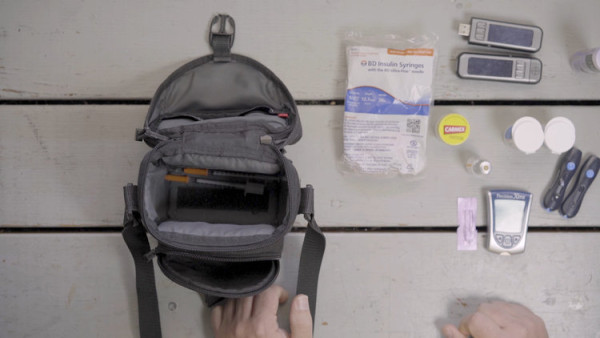
Dan uses a camera bag to keep his supplies in.
How do you respond to people when they notice or comment on your devices?
I remember when I got my first insulin pump, a colleague of mine cracked a joke. I moved to California from Georgia, and he said, "Oh, is that one of those dumb cell phones from Georgia?" I looked at him with the straightest of faces, and I said, "It's an insulin pump; it keeps me alive" in as flat of a voice as I could. You could just see the horror on his face; it was so funny. I'm like, "No, it's all good." Sometimes you just have to roll with it. Unless you are type 1 or know somebody who's a type 1, it's an opportunity to educate people and teach them about what's going on. I think there's a lot of misinformation about diabetes. I try to be fairly public, but not necessarily diabetes first.
What would you tell someone considering this same combo?
I think if I had to say anything about devices, if you try one and it doesn't work, it doesn't mean that the whole category of those devices is bad. It's just maybe that one doesn't work well for you, so try a different one. I wish I could tell myself five years ago, just try different brands of sensors. All sensors aren't bad. But hindsight is always 20/20, and you learn. This disease is an evolving target, so try different brands and different versions. You may find success in one that you didn't find in another.
How have you come to trust your devices?
Step-by-step. The documentation for the system I use is outstanding, and they really suggest starting with what they call an open loop, where the software will make recommendations that you can then apply manually to get you comfortable with how it works. As I began to trust the system more, I gave it more and more range to have control managing my diabetes, which has worked really well. But it's not as though I'm just going to hook everything up and go. You want to slowly introduce it and get more comfortable with it over time, and it may take six to eight weeks to get there, but that's okay. You learn how it works along the way.
Anything else you want to share?
When I found out I was diabetic, I asked the doctor, will I ever be able to ride a motorcycle? Little did I know that the endocrinologist ran the largest motorcycle gathering in the city, so he smiled and laughed and said, "Yeah, you'll be just fine." What I've found is that these devices allow me to enjoy the sport more. My license plate is "needles," it always brings up a conversation of what it means, and it gives me a window to say, "Hey, I'm a type 1 diabetic. I'm well controlled, but it's good for you to know that I have diabetes, should anything happen." It's been a safe and sort of humorous way to introduce the topic.
The devices help me make sure that I'm in range because, when you're going down the freeway at 65 miles an hour, your margin for error is significantly less. The devices help me manage whether I am level, trending up, or trending down because when I'm hundreds or thousands of miles away from home, the data becomes really, really valuable and helps me enjoy the sport more, be more confident, and go to cooler places. I mean, there's some cost, but there's also a whole lot of gain for me. It helps me live and do more of the things that I want to.
More Wisdom

Using a pump gives you freedom.
Kahla
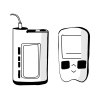
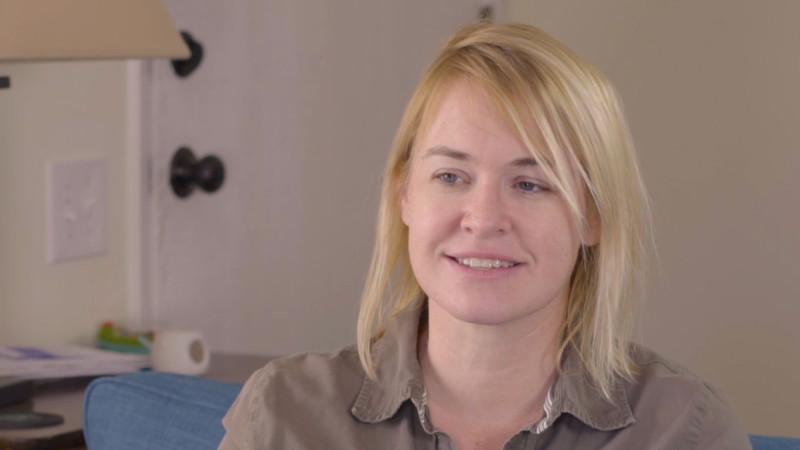
I want to live the healthiest, longest life I can. If I believe this device is the way to do it, I am willing to pay some extra money for it.
Kat
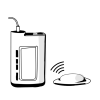
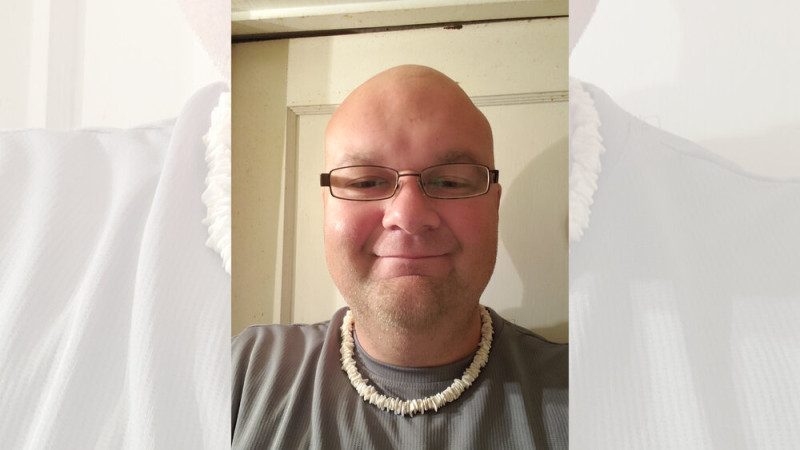
It was kind of like a weight lifted off my shoulders because I didn’t have to worry about doing all that stuff anymore. I was able to just test my sugar, put in the carbs I'm eating, and that was it.
James




